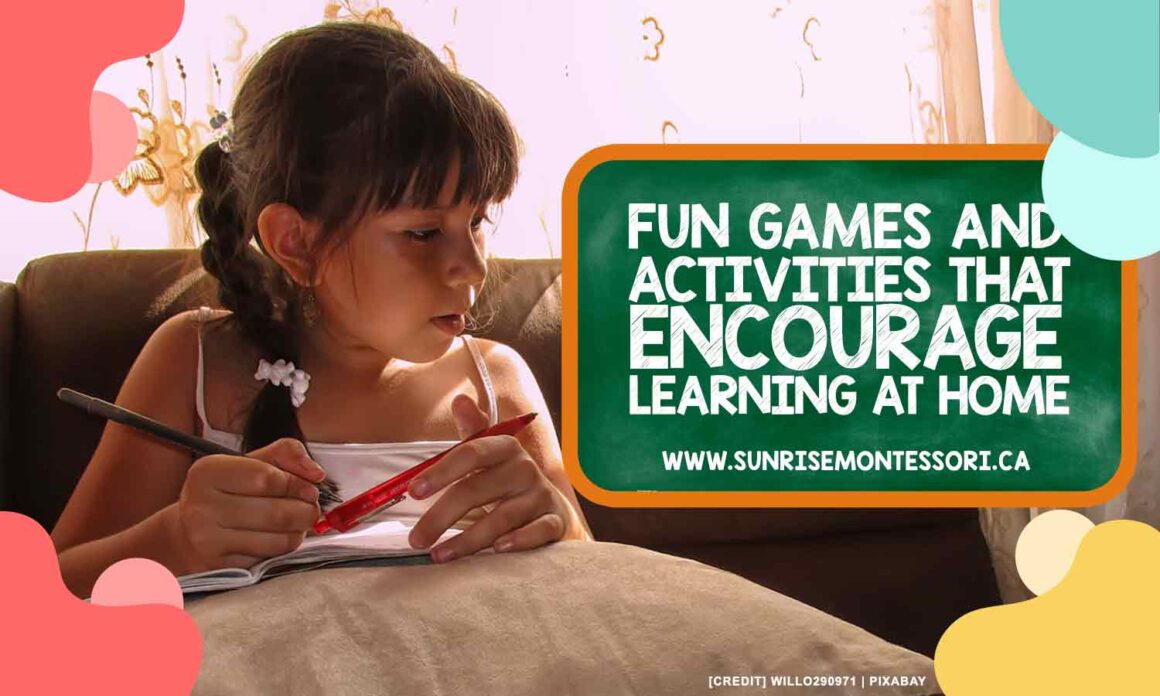School is not the only place where learning can take place. Homes are among the most crucial places for children to learn. One good news for parents is that there are a variety of fun activities for kids to do at home.
Early childhood development experts advocate the use of play and other fun activities to promote the healthy development of children’s brains. Playing is a crucial factor in the advancement of children’s communication and language skills. Parents have a role to play in encouraging their progress.
With the pandemic still at large, parents and their young children can make use of the time that they are spending at home to enjoy each other’s company while learning a thing or two. You don’t have to set up a classroom to be able to keep your kids busy.
Here are a few engaging and effective free activities for pre-schoolers at home:
Have Fun With Puzzles
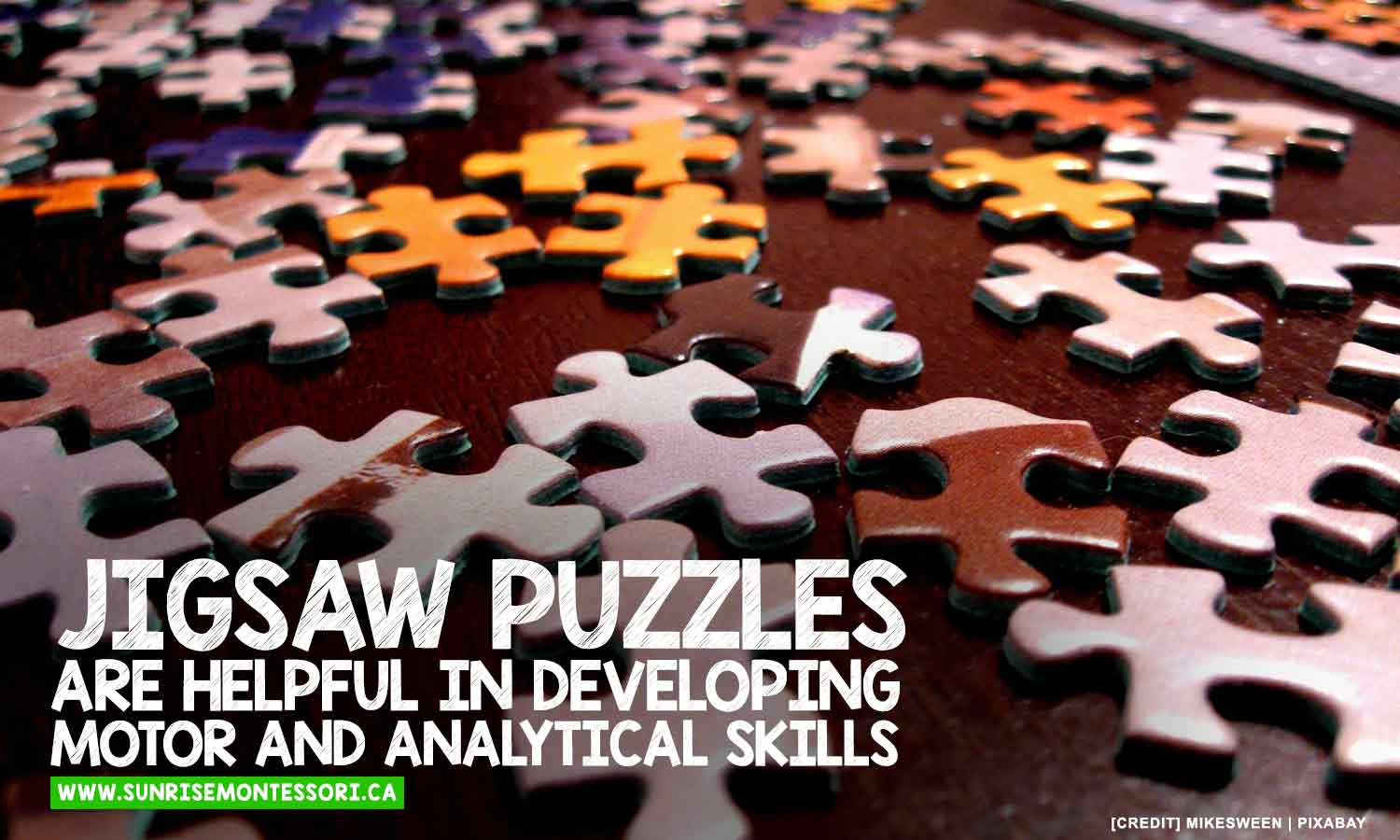
A simple jigsaw puzzle can help a child develop their motor skills (specifically finger strength), problem-solving skills, and persistence. Completing a jigsaw puzzle involves manipulating small pieces to form a whole. It requires hand-eye-coordination and dexterity to turn, flip, and wriggling pieces to fit.
In addition, puzzles encourage the child to analyze the situation and use problem-solving skills to connect pieces together to create the big picture. The ability to test ideas and solve problems are crucial life skills that will be useful later in life.
Jigsaw puzzles are also a fun way to teach children the value of persistence as they attempt to complete the task. In order to reach the goal, along the way, your child will learn to accept defeat, overcome daunting challenges, be more patient with a task, and persevere until the puzzle is done.
Organize a Scavenger Hunt
Children have so much more energy than most adults. To put this energy to good use, parents can find an opportunity to make games more fun and physically exhausting for children (which can help them sleep better at night).
If you have a garden or lawn, you can organize a scavenger hunt game using different numbers, colours, or maps. This encourages your child to use both their mental (when interpreting the map) and physical prowess to achieve their goal. If you don’t have a garden, you can do this inside the house. You can modify the game to incorporate lessons in biology, anatomy, language, history, and many others.
Sing and Dance
Singing and dancing are among the most effective ways to teach children language and sound as well as a host of other concepts. Experts believe that even when the child is still forming in the womb, songs (specifically, classical music) can contribute to the development of their brain.
Educators have been relying on songs moves to expand the vocabulary of children and help them become better communicators. The rhymes in songs are also excellent exercises for the brain and develop children’s memory. When performed together with a few simple movements (like in the song My Toes, My Knees, My Shoulders, My Head), these songs can also help develop motor skills.
Phonic Learning through Worksheets and Play Sets
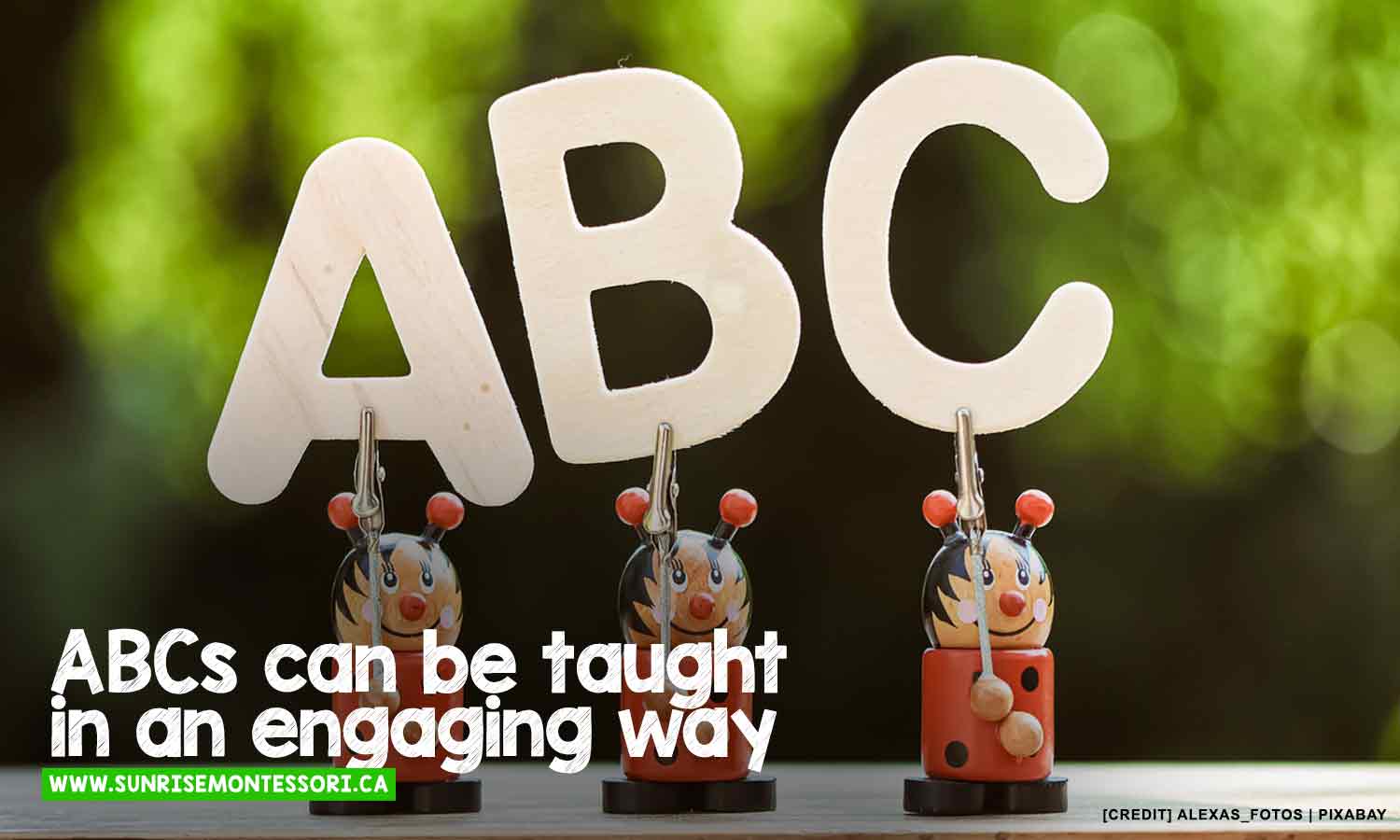
Teaching a child to read can be especially challenging for both the parent and the child. While there are children who find reading a challenge, others simply want more varied and fun ways to introduce phonics.
Instead of limiting your child’s reading materials to books and charts, you can use playsets and worksheets. More colourful and interactive playsets can capture the attention of children.
Note that some children will find reading more challenging than others. If you think your child is having difficulties learning to read, you can have a child expert assess them.
Let Kids Hold the Pen
Many funny parent anecdotes involve their children leaving pen, paint, and crayon markings on the walls of the house. Take advantage of their inclination to draw anywhere — and everywhere! — and create a few learning activities for your kid.
Dedicate a wall, perhaps in their room or living room, and allow them to turn it into a big board or canvass. Doing so will help foster creativity while developing fine motor skills. To make sure you don’t run out of space, you can clean the wall weekly so your child can come up with new creations. There are available markers that can be easily removed using detergents and other cleaners.
If you have school-aged children, you can give them more time to improve their penmanship through daily writing tasks. Encourage the advancement of their writing skills by using educational activities for elementary students. These are more varied and a little more structured but still fun.
Enhance Counting Skills
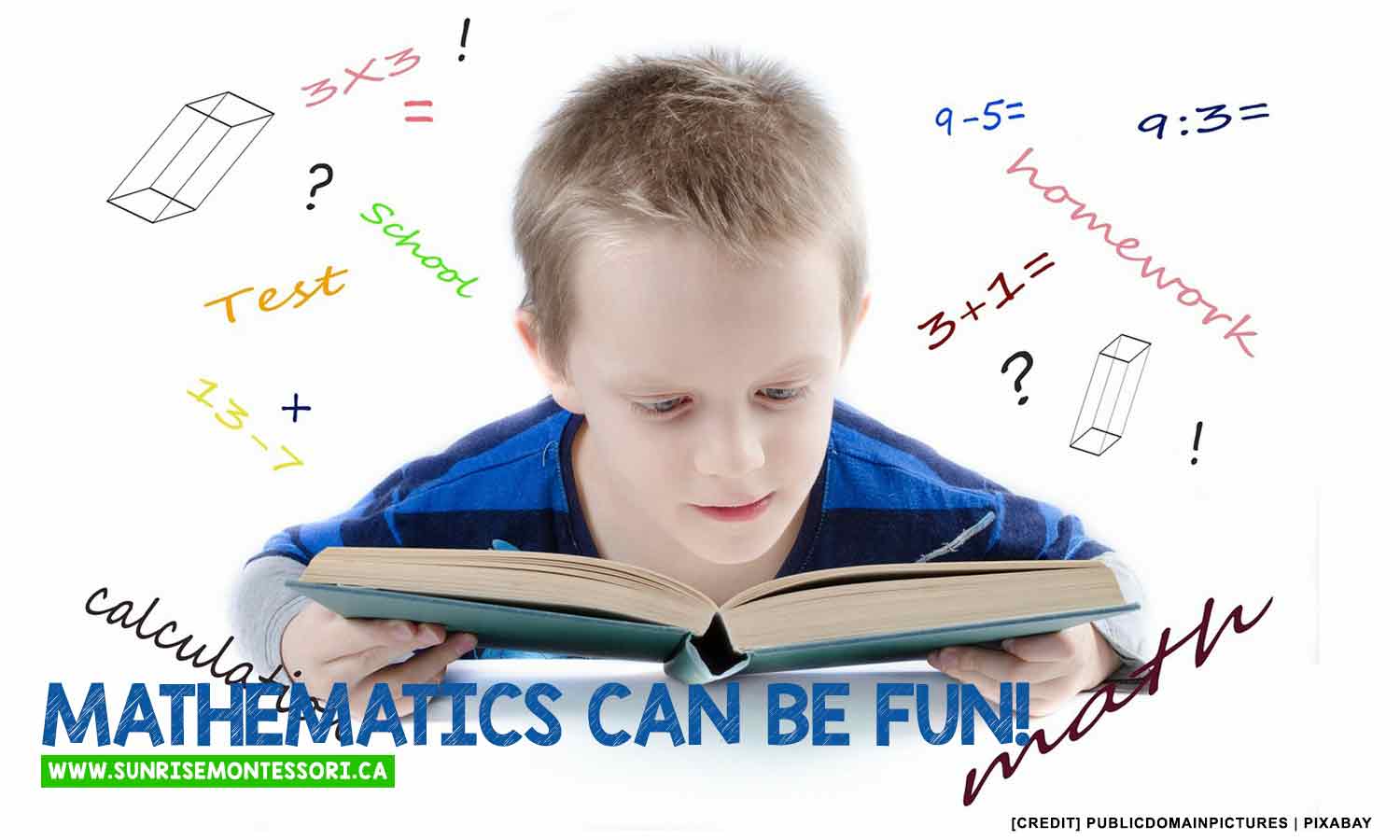
There are various ways to teach children counting skills. Aside from the worksheets that you can create or download online, you can also incorporate Math lessons to home activities.
One of the fun learning activities for kindergarten would be to count stocks in your pantry. For kids big enough, you can also make them “earn” money by doing household chores.
Active Biology Lessons
Why stick with photos and drawings when you can let kids see animals and plants with their own eyes? Take them to your garden where there are plants, bugs, and even some animals that they can identify. Experiential preschool activities at home are among the most effective means for children to retain information.
Try Science Experiments
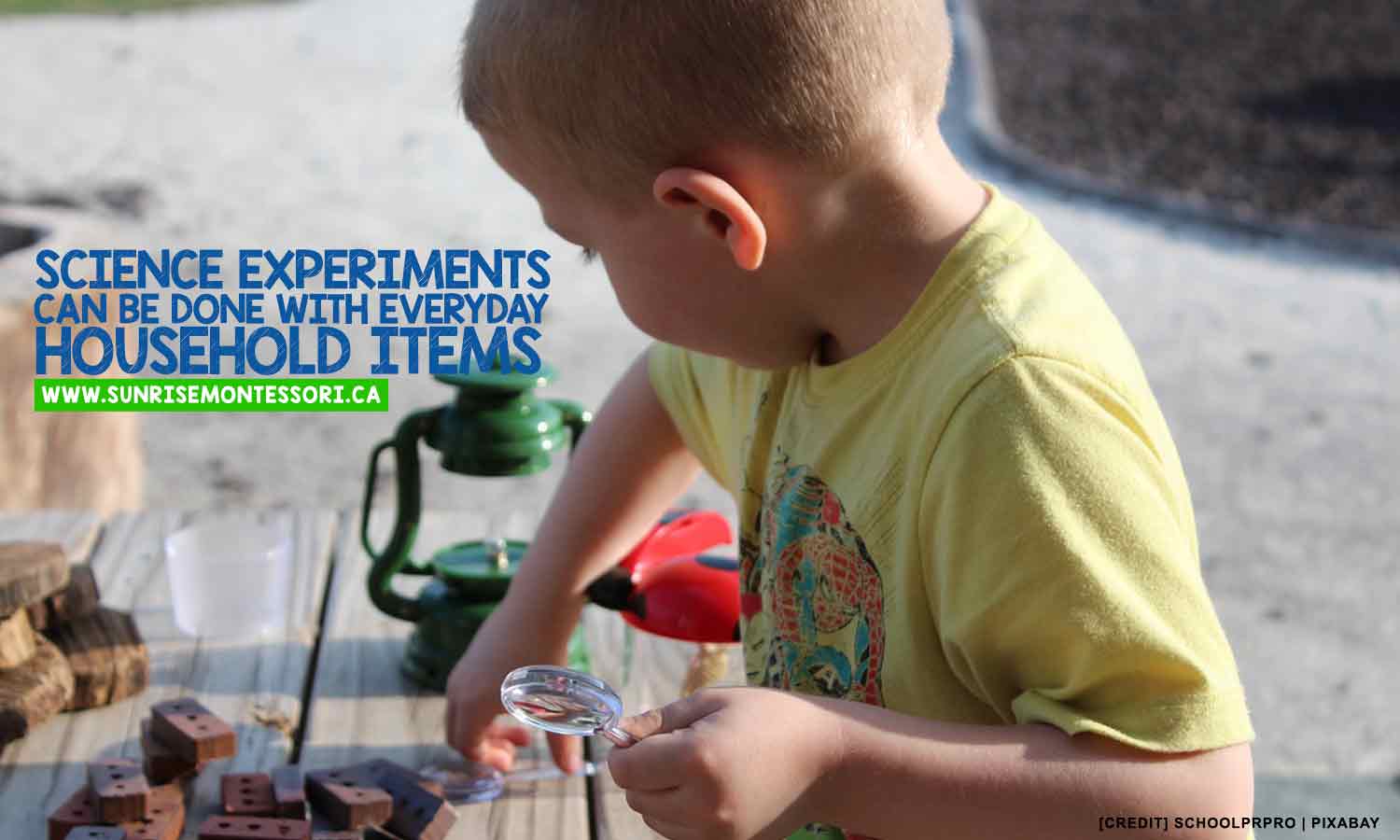
You will be glad to know that you can add a few simple science experiments to your kid’s creative activities at home. Luckily, you will not need a sophisticated laboratory to perform these experiments; you can do most of them using what you have around the house. You can try simple experiments taught online for reference. Regardless, children will enjoy seeing science in action.
Plant a Garden
Teaching children patience and responsibility can start with a single seed. Planting a garden involves a lot of things — preparing the soil, the actual planting, daily watering, and waiting for the plant to grow. Gardening covers a multitude of lessons in science, nutrition, and aesthetics. If you wish to teach your children self-sufficiency in the future, a vegetable and/or fruit garden is also something that you can start working on.
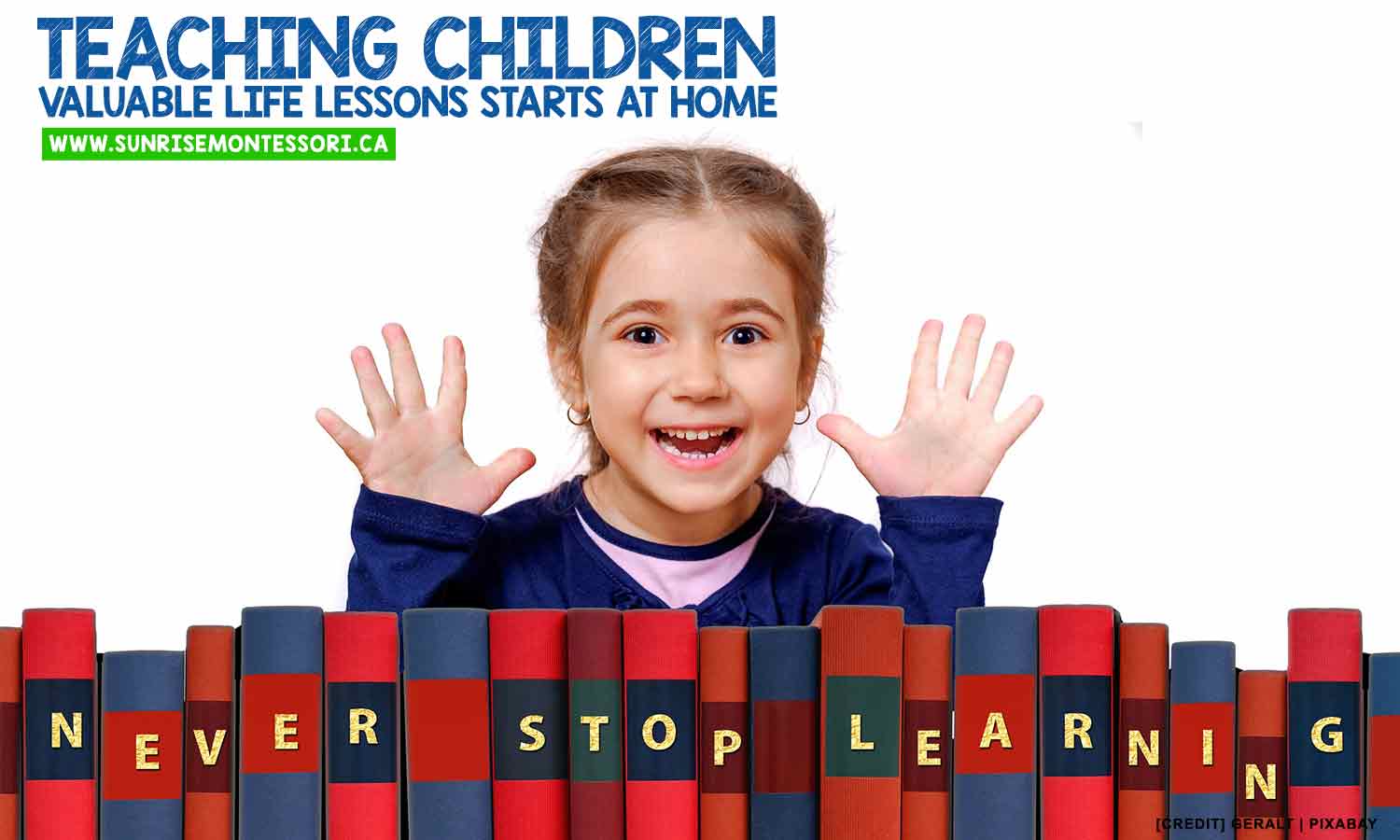
Learning should be a continuous process; and it starts at home.
Sunrise Montessori believes that catering to the individual needs of children will turn them into well-rounded adults. We hold classes for young children from infant to elementary. With everyone mostly staying at home these days, we at Sunrise Montessori, following our philosophy of spontaneous use of human intellect, campaign for a home that is conducive to learning.
For inquiries regarding our programs or assistance with at-home learning activities or resources for your child, you can call us at (905) 477-2833.

